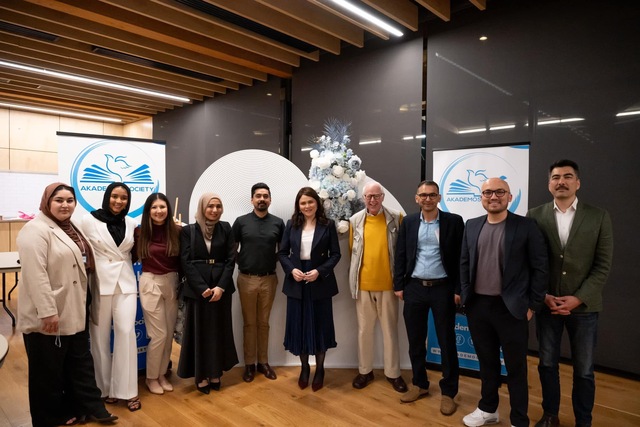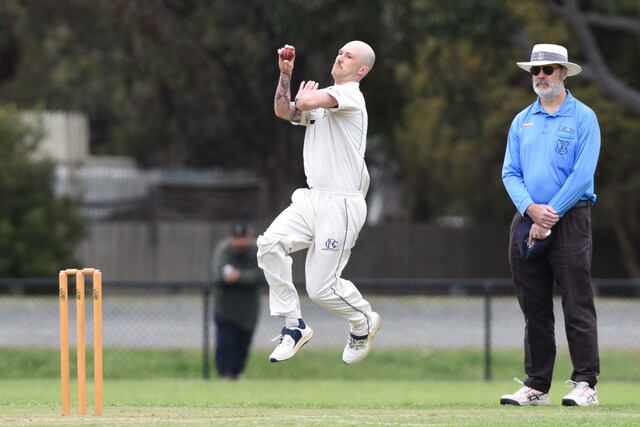Newly-elected Casey councillors are being sidelined from representing the community in local planning issues, former councillors say.
Last year, Casey administrators endorsed a new policy for all planning application decisions to be made by council officers to reduce the risk of corruption, in response to the IBAC Operation Sandon inquiry into Casey councillors and developers.
In rare circumstances, a councillor may ‘call in’ an application to have the matter determined by the council at a meeting.
However, former councillors say that the administrators went too far.
Former Cr Brian Oates, who is also the president of Casey Residents and Ratepayers Association (CRRA), was concerned that councillors didn’t have a say on planning requirements that were impacting the viability of local businesses such as BK 2 Basics food pantry in Narre Warren and Phil Hume Auto in Pearcedale.
Star News reported in January this year that both businesses had met with what was described as “impossible and unrealistic” planning guidelines to obtain or keep their permits.
In a statement to Star News, Cranbourne Gardens Ward Cr Michelle Crowther, whose ward is often the battleground for planning issues, said she really wanted to fight for the community.
But she was surprised to learn the vast majority of individual planning applications are made by council officers under delegation, which means councillors are kept at arm’s length from the process.
“I understand this is frustrating for residents to hear. People expect their councillors to help when a planning issue arises,” she said.
“Whilst I cannot influence individual applications, I am doing everything I can to make sure local voices are heard when it comes to broader planning policies and the future direction of Casey.”
Protocols for Councillors – Land Use Planning, the current policy that guides the conduct of councillors when it comes to land planning matters, was endorsed in May 2024 by administrators.
It states that all applications are determined under delegation by council officers. If a councillor wishes to ‘call in’ a planning application to have the matter determined by the council at a council meeting, this should be made in the broader community interest.
Broader community interest is defined as matters which impact the state, South East Melbourne region or the Casey municipality. It does not include matters that have a discrete, localised or neighbourhood catchment.
Casey chief executive Glenn Patterson said the latest policy is a direct response to recommendations from Operation Sandon, to minimise any risks of corruption.
He specified that councillors had a key role to play in contributing to and setting Casey’s strategic direction for land use planning, while qualified planning officers then deliver on the strategic direction through the determination of planning applications that meet the council policy outcome and planning scheme requirements.
Mr Oates from CRRA acknowledged that Operation Sandon raised legitimate concerns about alleged corruption and poor handling of conflicts of interest in Casey’s planning matters.
But he said Casey’s policy does not strike the right balance between genuine locally elected representation on matters important to the community whilst managing any potential conflicts of interest.
“Residents were looking forward to having newly elected councillors after last year’s election to restore democracy and true local representation in Casey. Instead, some residents feel as though they now have figureheads following what the faceless and unelected bureaucracy of council officers decide for them,” he said.
He pointed out the thresholds for delegation are too high.
“In not even allowing decisions made at a localised or neighbourhood level that may be important to residents to be ‘called in’ by councillors, it really takes the ‘local’ out of ‘local government’,” he said.
He urged a review of the policy before the compulsory review date in 2028.
Former Cr Damien Rosario said the policy is “really restrictive”.
He recalled back in the day if there were more than six objections to any planning application, it would come to a council meeting for a decision.
He believed that there should be a balance between technical expertise and local knowledge.
“Councillors represent the people. They need to listen to their constituents, and they need to balance that with their obligations under the Planning Act as well. They’ve got to look at both sides, not just delegate their authority,” he said.
“There is a local issue that happens, and if they need to raise it, I think they should be able to do that at a council meeting, which is what we’ve done in the past. We can have debates. We can discuss the technicalities. We can seek officer clarification on the application.
“That’s part of the process of the transparency that goes with these applications that come to council.
“I think without that, you’re removing a big part of what it is to be a council and to be able to represent the people.”
Former Cr Rex Flannery said councillors may not have the skills to make planning decisions, but they should be consulted on any issues relating to the City of Casey.
“Transparency is supposed to be held in high regard by the City of Casey, but it seems the officers don’t want councillors to know what’s going on. The councillors are the directors of the council and should not be undermined.
“I would be calling the CEO to account and have all planning decisions open for all to see,” Cr Flannery said.
Mr Patterson said they are currently investigating ways to facilitate consultation meetings where there is significant interest in a planning application.
“For example, an application that has received a high volume of objections, where the ward councillor would be invited to listen and observe,” he said.
“This would enable them to hear all views without pre-determining an outcome, should the matter then be presented at a council meeting for a decision.”
When asked if he would raise a motion to review the policy, Casey mayor Stefan Koomen said there are important lessons to be learnt from Operation Sandon, and the council must carefully consider the recommendations from IBAC as they move forward.
“It’s important that we don’t rush to make any hasty policy changes, we need to approach decisions thoughtfully with long-term solutions in mind. It is essential that we get it right,” he said.
“The focus right now is rebuilding the trust in our community that’s been impacted, and that starts with being as open and transparent as possible in all our decision-making.
“The community deserves nothing less. I also recognise the importance of making key planning information and consultation opportunities on planning matters easily accessible to the community.”







